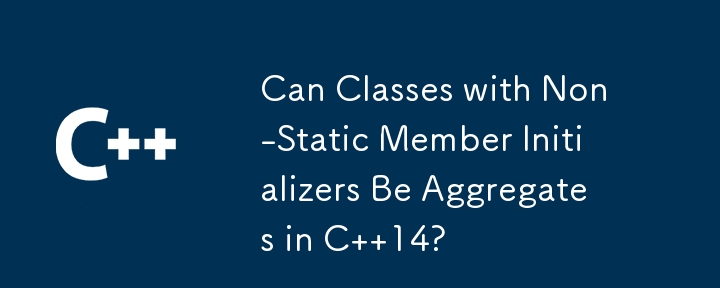

C 11 Aggregate Initialization for Classes with Non-Static Member Initializers
In C 11, structures and classes with user-defined constructors and private or protected non-static data members are not considered aggregates. Historically, this was also the case for classes with non-static member initializers, even though they lacked user-defined constructors.
However, in C 14, this restriction was removed. Now, classes with non-static member initializers can still be aggregates, as long as they meet the other requirements for aggregates:
For example:
struct A
{
int a = 3;
int b = 3;
};
int main()
{
A a{0, 1}; // This is now allowed in C++14
return 0;
}This change was motivated by the desire to align the behavior of aggregate initialization with intuition. In-class initializers are essentially equivalent to user-defined constructors, but it is counterintuitive for them to prevent a class from being an aggregate.
Since G 5.0, C 14 aggregates with non-static data member initializers have been supported using std=c 1y or -std=c 14.
The above is the detailed content of Can Classes with Non-Static Member Initializers Be Aggregates in C 14?. For more information, please follow other related articles on the PHP Chinese website!




